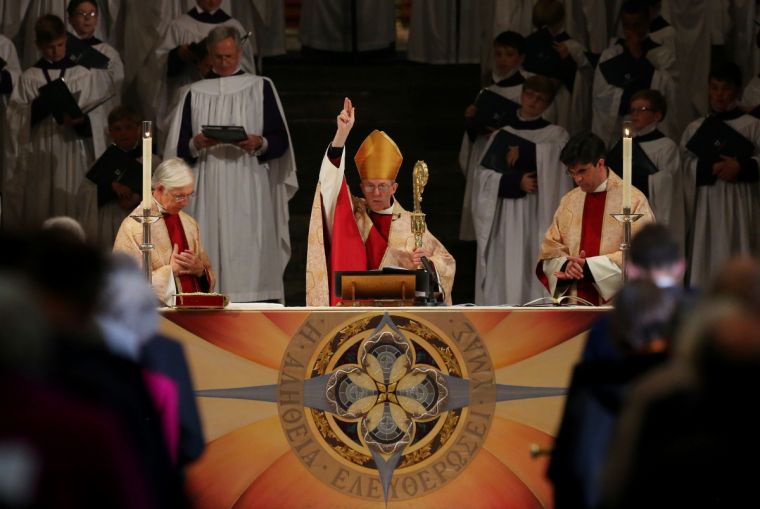David Cameron is right, Britain is a Christian country, says Archbishop of Canterbury

The Archbishop of Canterbury has waded into the very public debate over whether Britain is indeed a Christian country. His conclusion? The historical facts may make for uncomfortable reading but they speak for themselves.
The last few weeks have seen an interesting exchange among Christians and non-Christians that all started when David Cameron suggested Britain be "more confident about its status as a Christian country".
Some 50 secularists, including Philip Pullman and Tim Minchin, promptly set about correcting the Prime Minister in an open letter to The Telegraph in which they categorically refuted the idea that Britain was a Christian country and said that such a characterisation "fosters alienation and division in our society".
Leaders of other faiths have been part of the conversation, giving assurances that they have no problem with Britain being defined as a Christian country.
Farooq Murad, of the Muslim Council of Great Britain, was quoted as saying in the Daily Mail that "no one can deny that Britain remains largely a Christian country ... we respect that", while Lord Indarjit Singh, of the Network of Sikh Organisations, said it was "not the greatest sin to say this".
"What is of greater concern is the letter in response, which says we are not a religious country," Lord Singh contended.
That letter has been followed up by another, again published in The Telegraph, by a group of philosophers who said a "Christian humanism" had become the "public orthodoxy" in Britain and that secularists should "exercise liberal tolerance" towards religion.
Attorney General Dominic Grieve meanwhile has said atheists are "deluding" themselves if they think Britain is not a Christian country, while atheist Lib Dem leader Nick Clegg said it is "flamingly obvious" that Britain is founded on Christian values.
So what does the Archbishop of Canterbury make of all this now that most of the responses are in?
In a sense, he agrees, if the definition of 'Christian country' is judged purely on the basis of how many people are sitting in the pews each Sunday.
"It is clear that, in the general sense of being founded in Christian faith, this is a Christian country. It is certainly not in terms of regular churchgoing, although altogether, across different denominations, some millions attend church services each week," he writes.
However, to define Britain as a Christian country insofar as its cultural and institutional development is concerned, this is somewhat stating the obvious in the Archbishop's eyes.
"The Prime Minister and other members of the Government have not said anything very controversial," he writes.
"It is a historical fact (perhaps unwelcome to some, but true) that our main systems of ethics, the way we do law and justice, the values of society, how we decide what is fair, the protection of the poor, and most of the way we look at society . . . All have been shaped by and founded on Christianity.
"Add to that the foundation of many hospitals, the system of universal schooling, the presence of chaplains in prisons, and one could go on a long time. Then there is the literature, visual art, music and culture that have formed our understandings of beauty and worth since Anglo Saxon days."
The Archbishop suggests that if anything, the secularists have overreacted in their protest to Cameron's comments.
"Anyone would think that the people concerned had at the same time suggested the return of the Inquisition (complete with comfy chairs for Monty Python fans), compulsory church going and universal tithes."
He goes on to say they are "wrong" in arguing that an expression of confidence in Britain's Christian identity "fosters alienation and division" in society, saying on the contrary that a "moderate and careful and generous Christian faith" has enabled the country to be "welcoming to other faiths".
Such a generous hospitality is, he continues, what "protects atheists as well".
He concludes with an unequivocal two thumbs up to David Cameron.
"So why the fuss? As I say, for all of us, in the church, of Christian faith, of any tradition or set of beliefs, history makes for some uncomfortable reading. Its facts are awkward for all of us, but it is no use pretending they do not exist. The PM is right on this."











